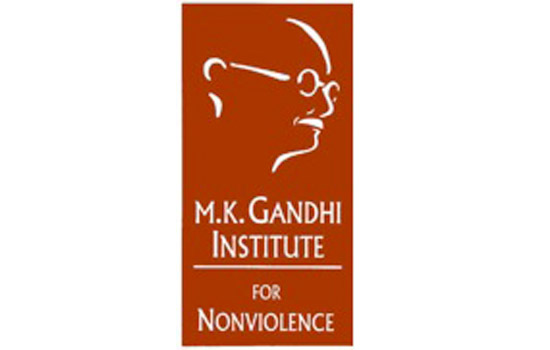Restorative Rochester Week Promotes Principles of Non-Violent Conflict Resolution
Series of community events promotes understanding between victims, offenders
A. Sue Weisler
The M.K. Gandhi Institute for Nonviolence is dedicated to promoting the principles of nonviolent protest and political action promoted by Mohandas K. Gandhi. This institute is cosponsoring Restorative Rochester Week with RIT's Department of Criminal Justice.
A key initiative in criminal justice reform and crime prevention is the growing use of the theory of restorative justice, which focuses on conflict resolution and meeting the needs of victims and offenders through open discussions and restitution as opposed to exacting punishment.
To better promote the use of restorative practices in the Rochester region and reduce local crime and conflict, Rochester Institute of Technology, the University of Rochester and a host of local service organizations are sponsoring Restorative Rochester Week, Sept. 11 through Sept. 18.
“Restorative justice is an increasingly effective method for improving public safety programs and reducing conflict in society,” notes Kit Miller, director of the M.K. Gandhi Institute for Nonviolence at the University of Rochester and one of the organizers of Restorative Rochester Week. “Through a series of workshops and community discussions we hope to provide local agencies and citizens with the tools to better implement restorative practices in daily life.”
The week’s events will include a restorative systems workshop conducted by Dominic Barter, an international restorative justice expert and trainer who is currently working with the government of Brazil and the United Nations to develop nonviolence and conflict resolution programming. It will also feature Next Steps: Restorative Practices in Rochester, a community conference with local public safety and social service agencies.
Barter will also give the second annual Thomas Castellano Memorial Lecture at 7 p.m. Sept. 14 at the Baptist Temple, 1101 Clover St. in Rochester. Sponsored by RIT’s Department of Criminal Justice, the talk, which is free and open to the public, honors the life and legacy of the late Thomas Castellano, the former chair of the department and noted restorative justice researcher and activist.
“Tom Castellano was a strong believer in and advocate for the principles and benefits of restorative justice,” adds Judy Porter, professor of criminal justice at RIT. “We are honored to host Dominic Barter, who has worked on the ground in some of the world’s most violent areas and successfully helped communities and citizens resolve conflicts and increase societal order without violence.”
Additional sponsors of Restorative Rochester Week include RIT’s College of Liberal Arts, Partners in Restorative Initiatives, The Center for Dispute Settlement, and American Baptist Churches of the Rochester-Genesee Region.







